The Australian Salesian Missions Office was founded in the 1960’s and is part of the Salesians of Don Bosco – Australia-Pacific Province (Salesian Society (Vic) Inc.). As a Catholic organisation and followers of St John Bosco we are committed to helping youth build a better future, through education and vocational training.
In 1986 we were granted tax deductible status for donations received for the relief of poverty in developing countries and subsequently recognised as The Australian Salesian Mission Overseas Aid Fund (ASMOAF) in 2000 or more commonly known as Salesian Missions Australia. The Provincial Council of the Salesian Society in Australia is the Governing Board of ASMOAF and is responsible for the administration of ASMOAF.
ASMOAF assists Salesians in developing countries in their work for the alleviation of poverty by providing financial assistance through the donations received from our many generous donors for which we are grateful. Most of these undertakings are facilitated through the Don Bosco schools that are well regarded in their local communities.
As we are part of the Salesians of Don Bosco – Australia – Pacific Province; it is our responsibility to take care of our Pacific neighbours; namely Samoa and Fiji.
In Samoa we have two schools;
- Don Bosco Technical Centre, Alafua
- Don Bosco Co-educational College and Vocational Centre, Salelologa
In Fiji, Suva, there is a Salesian House of Studies and a newly established Parish in Nasinu, where a multi-purpose community centre has recently been compelted thanks to the support of kind donors!!!

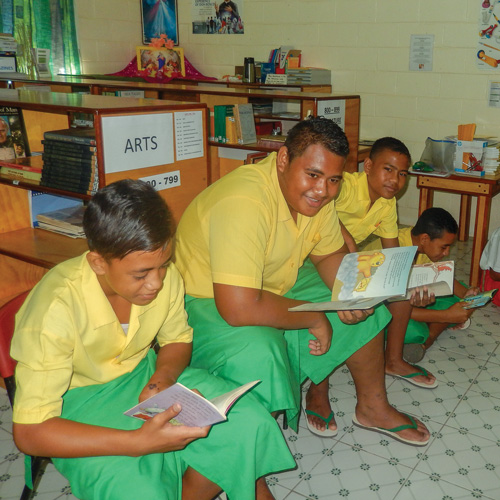
The Salesians of Don Bosco partners are working in 134 countries with a large contingent of about 30,000 committed religious men, women, volunteers and others. Salesians are located at the grass roots level in many of the world’s “trouble spots” and are endeavouring to help people better their lives.
Our Salesian partners are involved mostly in continuing projects for youth – work that has been established in response to local needs that care for marginalised street children and orphans. A major purpose in the Don Bosco Schools is to offer job related skills to youth enabling them to find gainful employment.
Our Mission is to support our Partners to deliver vocational teaching to underprivileged young people in developing countries.
We work together with local leaders that are passionate and agents of change within their communities. As Salesians are mostly locals and are immersed within the communities in which they operate, they know the unique challenges, needs and opportunities that exist.
International Salesian works and projects include schools (academic, technical, agricultural), school luncheon programs, orphanages, workshops for unemployed youth, emergency programs and accommodation for street children, drilling for water, running dispensaries and providing assistance to the disadvantaged. Don Bosco schools are well regarded in their local districts and continue to provide support for communities, not just individuals.
Aid and services are also provided directly to people in need of relief from poverty, sickness or helplessness as a result of natural disasters and emergencies. By launching special fundraising Appeals, Salesian Missions and their Partners are committed to working alongside local communities and organizations wherever possible, as they are in the position to respond first and often are the last to leave.
Program support has included the relief of famine in Africa, rebuilding earthquake damaged schools in Nepal and Ecuador, assisting flood victims in India, house internally displaced people in South Sudan, provide education, food and supplies in the face of pandemics and so much more. When responding to the delivery of emergency aid, Salesian Missions Australia and its partners are guided by and committed to applying the principles of humanity, impartiality, independence and neutrality as defined in the Core Humanitarian Standards on Quality and Accountability (CHS).
Salesian Missions Australia recognises that effective humanitarian responses require collective action. When responding to an emergency crisis we share information and knowledge with other stakeholders and local authorities. We encourage the participation in joint planning and integrate activities, without compromising humanitarian principles in order to deliver a co-ordinated, efficient and effective response.
Salesian Missions Australia support hundreds of education projects in developing countries and in recent years have assisted projects in Cambodia, Ecuador, Ethiopia, Fiji, Guatemala, India, Kenya, Myanmar, Philippines, Samoa, Solomon Islands, Sudan, South Sudan, Timor Leste and Vietnam.
Our aim is to enable partners to be more effective in the schools, orphanages and other centres in which they operate.

All Salesian activity is based on the rights of young people to an education and to live an active and fulfilling life free from poverty. As Salesians we draw our inspiration from Catholic Social Teaching and regard the following as our values:
- Human dignity - We recognise the sacredness of life and that every person has inherent dignity and worth. Our human rights and responsibilities are founded in this essential, shared human dignity.
- The common good - We have responsibility for one another in our life together, and are called to work for the common good of all. We advocate a just society in which all people, particularly the vulnerable and marginalised, are able to flourish and meet their needs.
- Subsidiarity and Participation - The capacity and capabilities of people and communities ought to be respected, with decisions made at the lowest local level possible. Everyone should have the opportunity to participate in and contribute to decision processes that closely affect them.
- Solidarity - Humans are social by nature and depend on one another. We seek to stand in unity with others, particularly those who are powerless or disadvantaged, and recognise each persons’ rights regardless of national, religious, ethnic, economic, political and ideological differences.
- Preferential care for the poor - Caring for the poor is the responsibility of all; the needs of the socially disadvantaged and vulnerable are to be prioritised.
- Economic justice – Life is not solely meant for profit, but rather in service of the entire human community. All who are capable should be involved in economic activity and should be able to draw from work, the means for providing for themselves and their family.
- Stewardship of creation - We care for the earth, recognising that all of creation is inter-connected and we are part of and dependent on the environment. Pope Francis has recently referred to this as "integral ecology".
These Values are instrumental in our dedication to the preservation and protection of Human Rights for all. To enable people to realise their rights and assist those responsible for upholding such rights as equality, freedom from discrimination and access to education, in line with the United Nations Charter on Human Rights, 1948.

B Business,
Assoc. Dip Business.
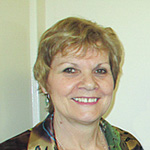

B Arts (Drama & Religion),
G. Dip Education,
M Development Studies

B Theology,
B Arts,
Dip Education
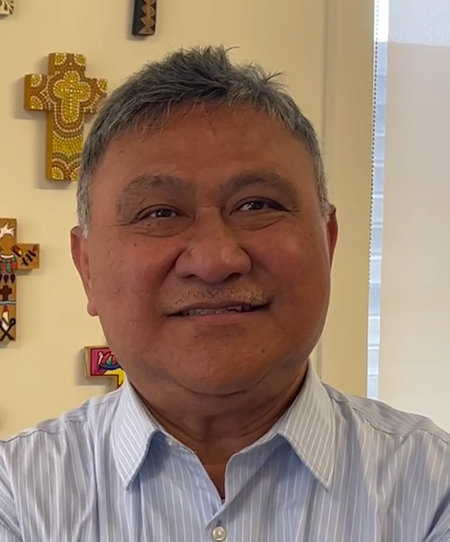
B Theology
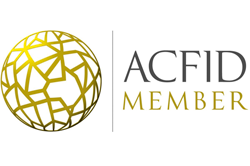
Salesian Missions Australia is a member of the Australian Council for International Development (ACFID), an association of non-government organisations in Australia working in the field of international aid and development.
Salesian Missions Australia is a signatory to the ACFID Code of Conduct (a voluntary, self-regulatory code of good practice) which specifies standards in organisational integrity, governance, communication with the public, finances, child protection, personnel and management practice. The Code aims to improve international development and humanitarian action outcomes and increase stakeholder trust by enhancing the transparency, accountability and effectiveness of ACFID members.
Salesian Missions Australia reviews its compliance to the ACFID Code of Conduct principles and procedures every three years. Our annual audited financial report complies with the standards set by the Code of Conduct. For further information, the ACFID Code can be found at www.acfid.asn.au
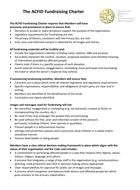
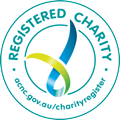
ASMOAF is registered with The Australian Charities and Not-for-profits Commission (ACNC), which is the independent national regulator of charities.
The ACNC has been set up to achieve the following objects:
- maintain, protect and enhance public trust and confidence in the sector through increased accountability and transparency
- support and sustain a robust, vibrant, independent and innovative not-for-profit sector
- promote the reduction of unnecessary regulatory obligations on the sector
In order to achieve the objects, the ACNC:
- registers organisations as charities
- helps charities understand and meet their obligations through information, guidance, advice and other support
- helps the public understand the work of the not-for profit sector through information, guidance, advice and other support
- maintains a free and searchable public register so that anyone can look up information about registered charities
- is working with state and territory governments (as well as individual federal, state and territory government agencies) to develop a 'report-once, use-often' reporting framework for charities
Further information about the ACNC can be found at www.acnc.gov.au
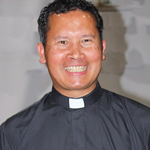
Fr William Matthews, Chairman, is Provincial of the Salesian Australian Pacific Province.
He is a former Rector and Teacher at both Salesian College Sunbury, and St Joseph’s College Ferntree Gully, Vic.
He is a former Chaplain and Teacher at Xavier College, Gawler, SA. He is a Chaplain to Myanmar Migrants and Refugees and an IT Multi Media Consultant.
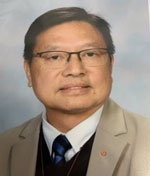
Fr Peter Hoang is Provincial Councillor, Delegate for Social Communications, Rector and Chaplain at Salesian College Sunbury.
Previously, Rector of Salesian Community and Chaplain at St. John Bosco College and Dunlea Centre Engadine. Former REC of Dominic College Glenorchy.

Fr Peter Carroll is Provincial Economer (Executive Officer of the Salesian Society in Australia) and is currently Rector of the Salesian Province Centre Ascot Vale, Vic.
He is currently the Spiritual Relations Manager for Salesian Missions. He was a member of the pioneer Salesian Community in Samoa; he has made regular visits to ASMOAF sponsored projects in Samoa and Fiji.
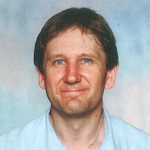
Fr Brian is the Youth Ministry Delegate and Vocations Animator for the Australian Salesian Province.
He is a former chaplain, teacher and REC of Dominic College Glenorchy and Xavier College Galwer.
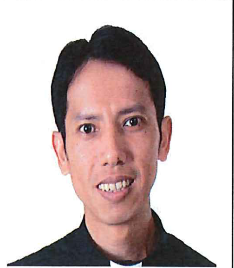
Fr Anthony Dung, currently Delegate for Formation for the Australian / Pacific Province, Vice Rector at Clifton Hill and Lecturer at CTC. Formerly Formation Professor at Don Bosco Philippines Northern Province from 2009.

Fr Mosese Tui is Provincial Councillor, Delegate for the Pacific and Vice Rector and Parish Priest at Salesian Community Massey, New Zealand. He is the foundation Principal of the Don Bosco High School and Vocational Centre in Salelologa, Savai’i, Samoa and a former Principal of Don Bosco Technical Centre Alafua, Samoa and the Rector of the Salesian House of Studies in Suva, Fiji.
The Salesians of Don Bosco are an international organisation of Catholic priests and brothers founded by St. John Bosco in 1859. They are dedicated to the service of the young, especially the disadvantaged and marginalised.
In collaboration with partners in schools, youth centres, hostels, camps and parishes the Salesians aim to bring the message of God to the lives of the young with a spirit of joyful enthusiasm. They accompany the young on the journey of life so as to enable them to grow and mature as “good Christians and honest citizens”.
St. John Bosco, affectionately known as Don Bosco, began his work by supporting, educating and befriending young men, many of them whose prospects in life would otherwise be dim. Don Bosco spent his life establishing oratories (youth centres) and schools for these poor boys. Today, the Salesians continue their work all over the world with the same focus on education and young people.
The first Salesians arrived in Australia in 1922. The Australia – Pacific Province now encompasses Australia, Samoa, Fiji and New Zealand.
The worldwide Salesian family is a vast movement of people dedicated to the education and spiritual care of the young, and includes an immense number of lay people working beside the Salesian priests, brothers and sisters. Missionary work is essential to the Salesian charism and they operate missions in many regions of the world.
For more information about the Salesians of Don Bosco in Australia visit their website at: www.salesians.org.au
For more information about the worldwide Salesian congregation visit their website at: www.sdb.org
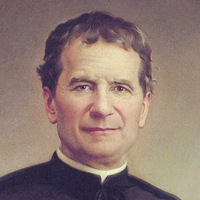
Our noble history began on August 16, 1815, upon the birth of our founder, John Bosco. At only nine years old, John had a dream which called him to dedicate his life to the education of poor and disadvantaged young people.
John followed his calling by entertaining and influencing his peers, even as a child. As well as being a practical man, he lived his life based on a deep love of God. His mother, Margaret, had instilled this in him from a young age. This was united with a profound sense of compassion for people from all walks of life based on humanity, kindness and a balanced attitude towards life.
In 1841, he was ordained a priest and in 1859 established the Society of St. Francis of Sales – popularly known as the Salesians. It was the beginning of a movement grounded in John's educational style based on reason, religion and loving kindness.
John Bosco was widely known as Don Bosco, “Don” being the Italian word for “Father”. He died on 31 January, 1888, at the age of 72. On Easter Sunday, 1 April 1934, Pope Pius XI, who had the good fortune to know him personally, proclaimed him a Saint.
Since its humble beginnings, the Salesians have inspired many others to follow the path of St. John Bosco, including St. Dominic Savio. Growth over the decades has enabled the Salesians to expand into regions of the world where the need is greatest. Today, we are located in more than 132 countries and touch the lives of millions of children and families.